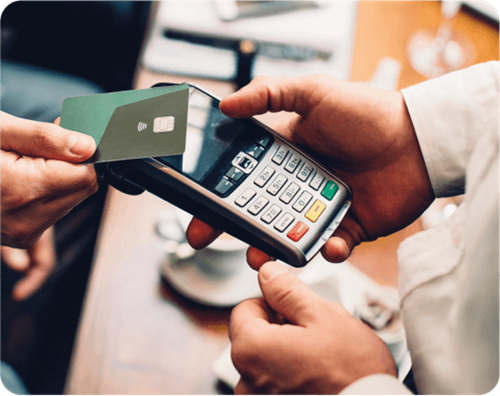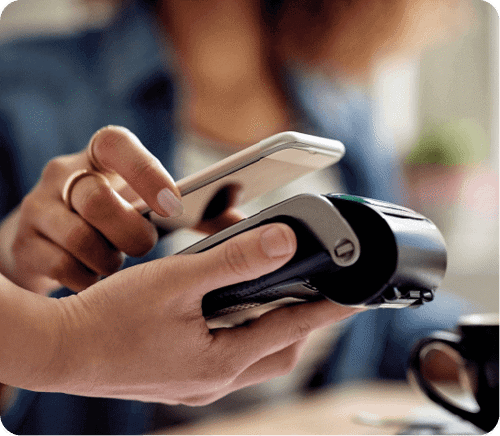Is it worth small businesses moving to cashless payments in 2024?
With the vast majority of financial transactions on Britain’s high streets now made up of credit and debit card payments, and the usage of physical cash still heavily declining, some businesses have begun to wonder whether a move to a cashless payments setup could be a step in the right direction.
While traditional cash transactions are still widely used, there are both advantages and disadvantages to only accepting card payments and contactless payments that businesses may need to consider, as we charge towards cashless transactions dominating the space.
At Handepay, we’re experts in all things card machines, business bank accounts and credit card payments, and have worked with tens of thousands of businesses - helping them to accept card payments from eager customers. So we’ve seen first-hand the shift towards cashless payment systems and credit and debit cards over the years.
With this in mind, here are a few reasons why you might want to consider moving to cashless payment methods in 2024.
What is a card-only business?

A card-only business is exactly what it sounds like - a business that only accepts card payments, as opposed to cash payments. This can also include mobile payments, using digital wallets like Apple Pay, Google Pay and more.
While not traditional, many businesses were tempted to make the switch to card-only payments during and in the aftermath of the pandemic, for obvious reasons. With many of them still maintaining a card-only payment system to this day. In the shadow of COVID, several popular high street restaurants chose to continue with card-only payments, finding them to be a safer, more convenient payment method for customers, according to an article fromThe Guardian.
This may not be a problem for most customers - the majority of British shoppers prefer to pay via card anyway, with 90% of retail payments being made using either a debit card or credit card, according to data from theBritish Retail Consortium.
However, the few customers who still opt for cash payments may be left disgruntled at a business’s choice to do away with the traditional payment method, despite the fact they’re drastically declining nationally.
Will cash payments eventually disappear?
There’s no way to know for sure whether cash payments will disappear entirely at some point in the future. All we know is that the data is indicating Britain - and the rest of the modern world for that matter - will continue investing further in card and contactless card payment options, with cash payments likely to continue falling until only the select few utilise the payment method regularly.
Some experts pointed to COVID as the cause for an even steeper decline in cash payments in recent years. However, a recent report by research houseMcKinsey has dismissed this claim, with the decline in cash payments seemingly set to continue -
“Cash usage declined by nearly four percentage points globally in 2022. Worldwide, the decline in cash usage during the pandemic shows no evidence of being reversed, led downward by the cash-reliant economies of India and Brazil, where the share of cash transactions fell by seven to ten percentage points.”
The benefits of card-only business setups

Cash payments may still hold a strong place in the British retail system, but there are still several advantages of switching to a card-only setup that businesses could consider:
Hygiene
The key driving point towards a card-only world in the midst of the pandemic, removing the option for cash payments also removes the option of passing bacteria between customers and vendors (and vice versa).
If health is of serious concern to both you and your customers - depending on the nature of your business and customer base - opting for card-only payments may offer some peace of mind and relax interactions between the pair of you when it comes time to pay for your goods and services.
Easier accounting
Keeping track of cash payments is always a daunting task for any business and it is incredibly easy to make mistakes when tallying up cash flow at the end of a busy day, week or month. But mistakes like these could have serious implications when it comes time to pay your taxes before the end of the tax year, with major missteps having dire consequences in some cases.
However, by only accepting card payments, all your received payments (end expenditure, if this is all done via card as well) are easily visible on your digital banking app and bank statements. By adding up these numbers, you should have a crystal clear view of all relevant financial statistics that help your business run.
Playing to the masses
As we discussed previously, a staggering 90% of the public now choose card payments over cash almost every time they shop. By opting for a card-only system, your business will still be serving the vast majority of the paying public well, with only a limited number of customers who may have an issue.
Besides, many customers who pay with physical cash also have card payment options available, so there will undoubtedly only be a very select few who have a problem with a card-only setup.
If you’re considering switching to card-only, consider Handepay
If moving to card-only is sounding more and more enticing and you’re on the lookout for a card machine expert to help you make the transition, speak to Handepay.
Not only do we offer a wide range of card machines to suit your business needs, but we’re also well-versed in all aspects of the card payment process - including merchant accounts, online payments, payment gateways and more - making us your ideal partners as you make the switch to a cashless standard.

